Jacqueline Najuma Stewart’s Migrating to the Movies: Cinema and Black Urban Modernity is a great starting place for anyone interested in learning about African American experiences with and in silent film. In the book, Stewart examines how “the urban and northern immigration of African Americans before, during and immediately after World War I influenced, and were influenced by, the emergence and development of the cinema” (3). Her book is split into three sections, one on African American representation in early film, the second on African American spectatorship, and another on early African American filmmakers.
Stewart’s examination of African American representation in early film is the densest section of the book, borrowing ideas from feminist and postcolonial theory and referencing such works as Laura Mulvey’s essay “Visual Pleasure and Narrative Cinema”. She examines several early American films that depict African American characters and discusses how these depictions reacted to the increasing urban migration of African Americans into mostly white cities. Her insights in this section are worth taking your time to engage with and understand. Luckily, many of the early films discussed in this section are available on YouTube and other sites.
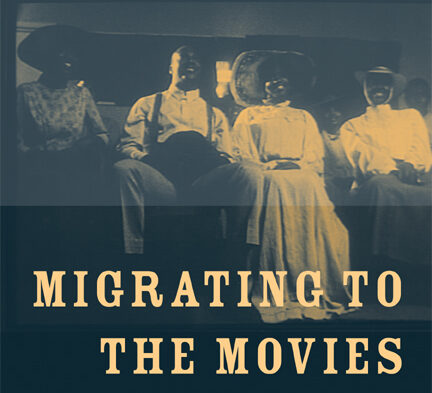
Perhaps my favorite part of reading this book was Stewart’s deep dive into the African American community in early 20th-century Chicago and their moviegoing habits. While at first her lengthy description of the downtown cityscapes and businesses in Chicago seemed tangential, this context proved crucial in understanding the varying opinions and perspectives on the positive and negative influences of movies on the African American urban experience. Stewart frequently cites African American Chicago newspapers and local Chicagoans to better represent the opinions and actions of African American theater owners, critics, and spectators.
Migrating to the Movies ends with a history of early filmmakers and production companies in the 1910s and early 1920s. Sadly, a majority of these films are presumed lost (check those attics!) with many of the filmmakers discussed having no extant works or only one or two surviving pictures. Luckily, I was able to watch the handful of Ebony comedies and fragments of other films on the Criterion Channel. I do wish that the book examined more 1920s race films and African American filmmakers like Richard Maurice but I am sure that would be a topic deserving of a book all on its own.
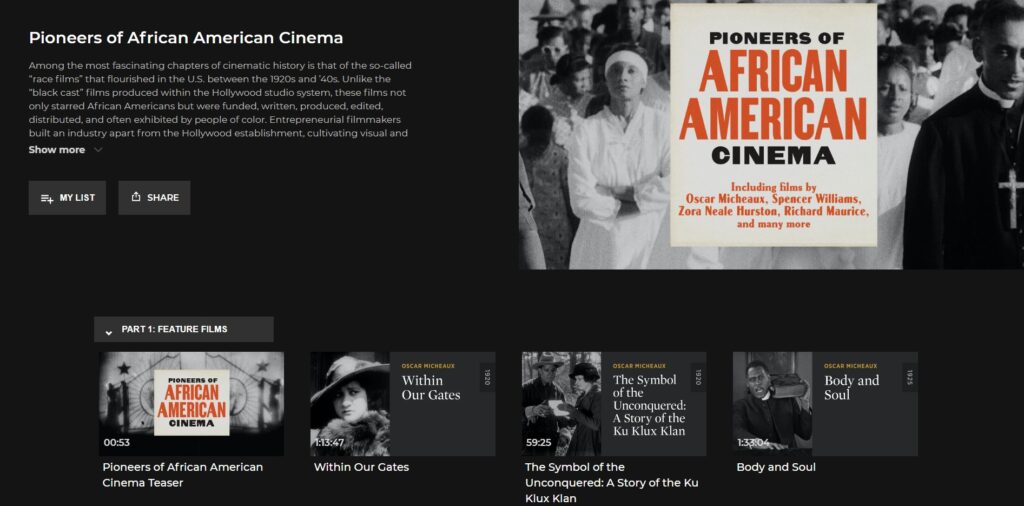
Pioneers of African American Cinema collection on the Criterion Collection
In this section on early African American filmmakers, Stewart devotes an entire chapter to Oscar Micheaux’s early feature films. Micheaux is by far the most famous early African American filmmaker and his work is well-deserving of a deeper examination. Stewart focuses on how Mischeaux sought to use his films to interpret African American experiences and examine both the hope and complexities of African Americans’ fight for equal citizenship. Stewart’s lengthy examination of Within Our Gates was especially enlightening, bringing together the context and information shared throughout the book to get at the heart of Mischeuax’s didactic message.
Overall, Migrating to the Movies is a treasure trove of black voices, experience, and history. While it is meant to be an academic exploration of African Americans in silent film, it is written in an approachable style for most readers. For anyone that is actively seeking to watch more African American directed and produced classic films, Stewart’s book will provide key contextual background to better understand the limitations faced by African American film production and the influence these films had on American culture and art. Reading this book has been an excellent companion as I’ve sought out more early African American films, providing me with more films to check out and more context that allows me to better understand the history behind these films.
This book review is a part of the 2020 Summer Reading Classic Film Book Challenge hosted by Raquel Stecher’s Out of the Past blog. Check out the other classic film books I am reading this summer.
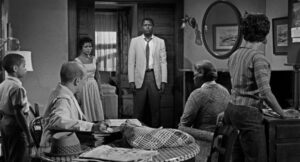
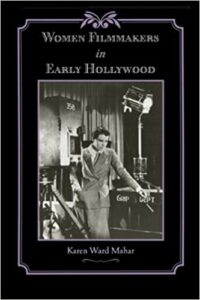
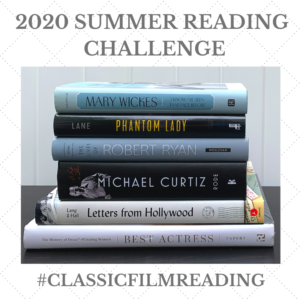
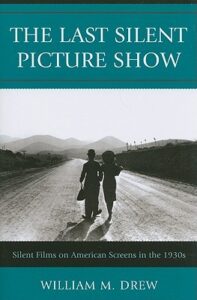
I need to expand my library of books on black film history and I love that this is written by Jacqueline Stewart! Thanks for bringing it to my attention and for participating in my challenge.
Thanks for having me!